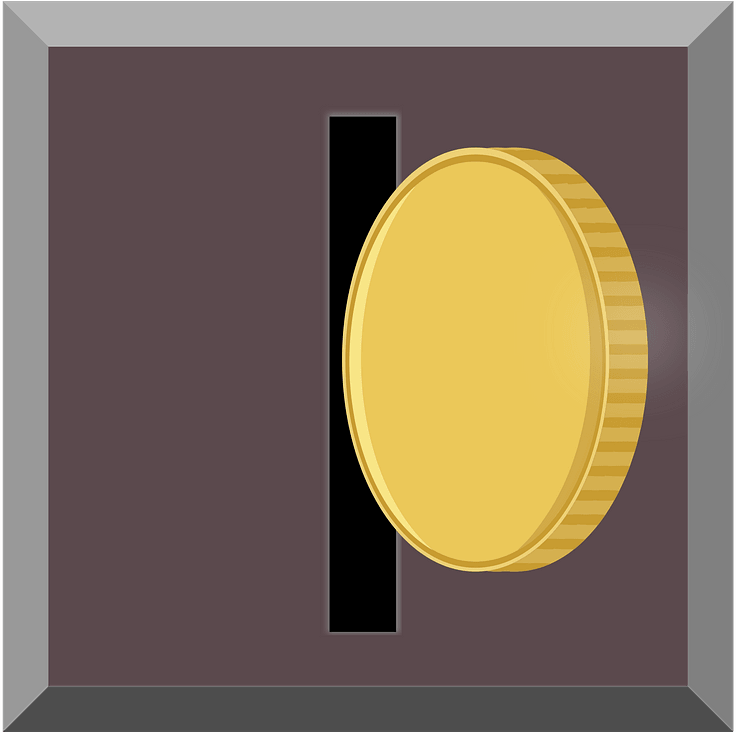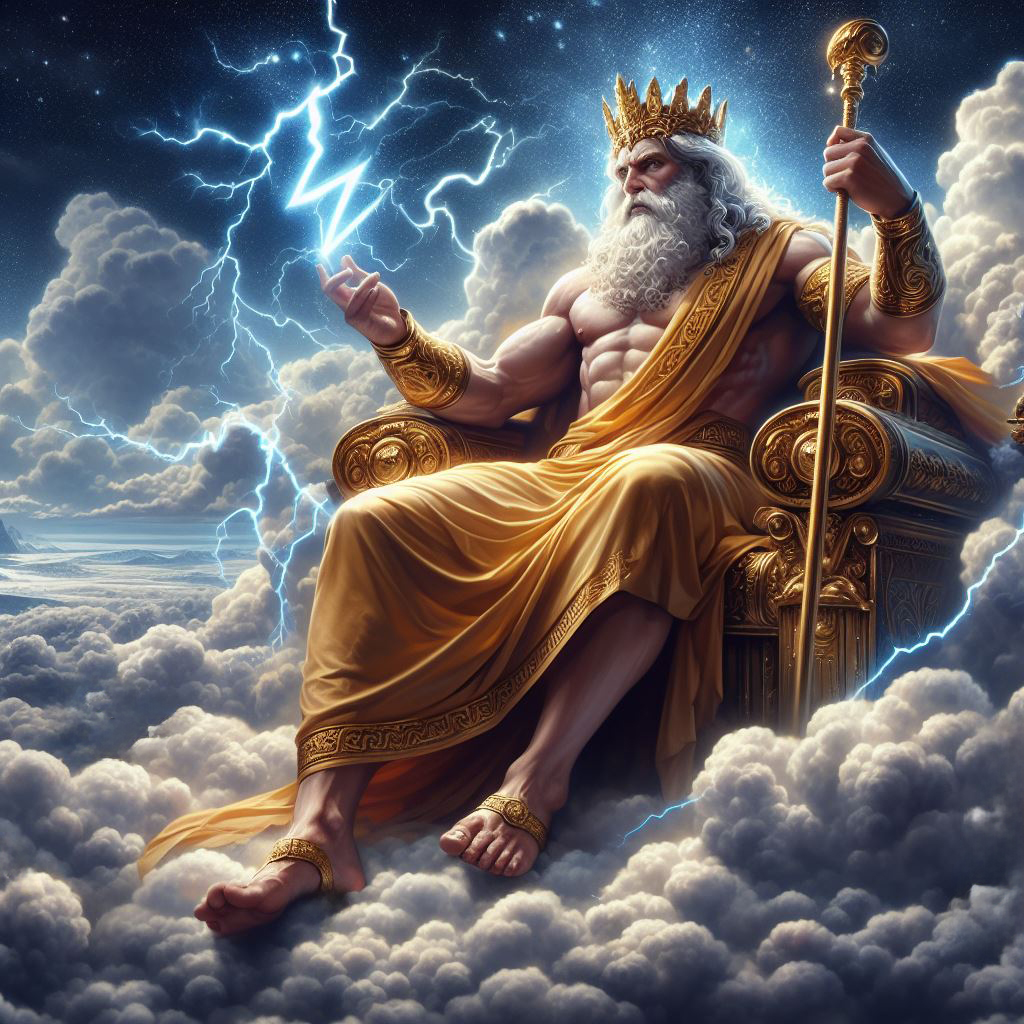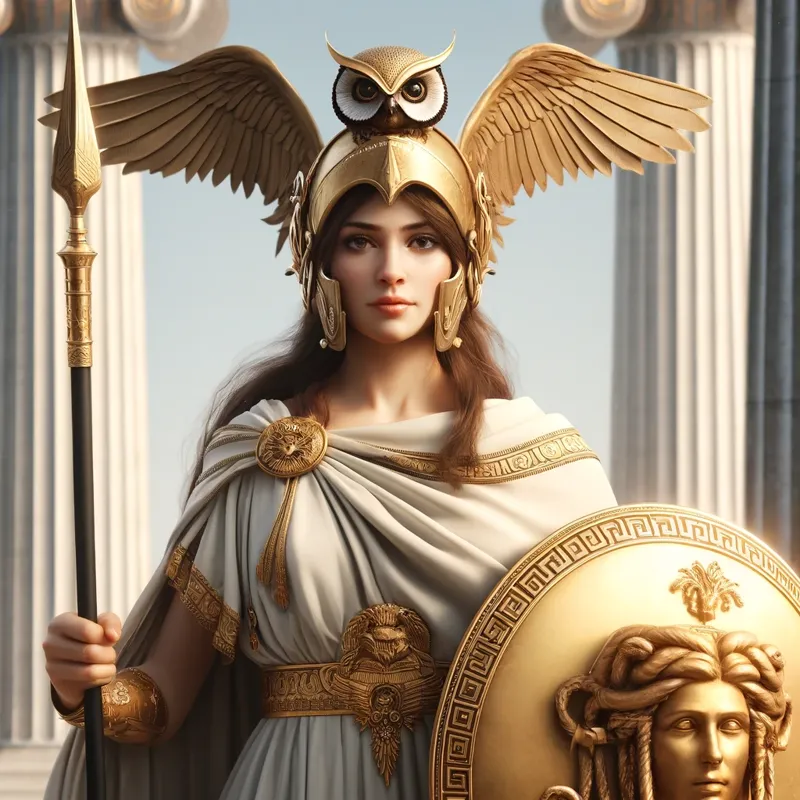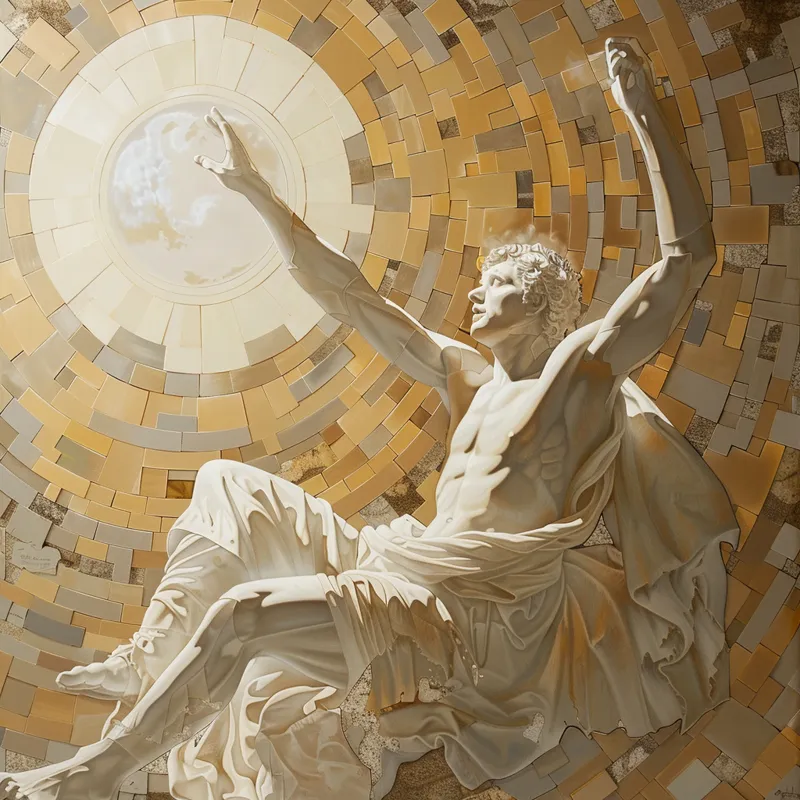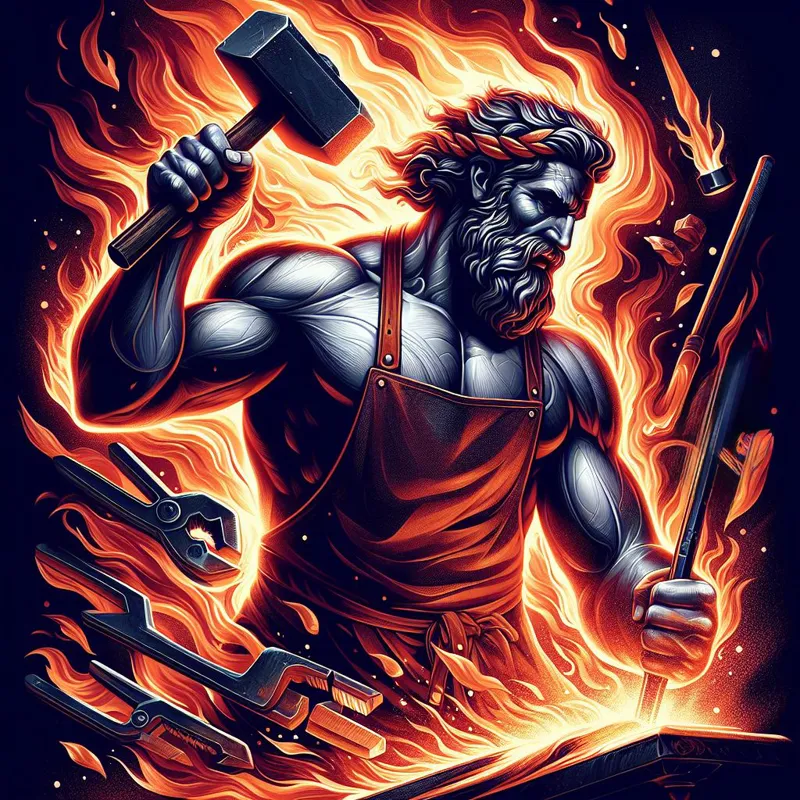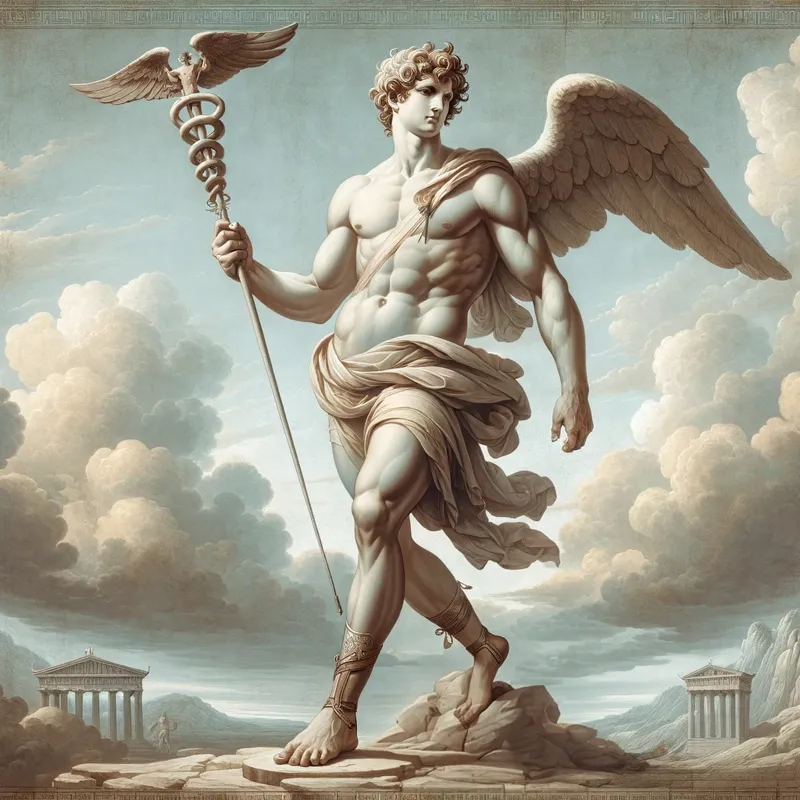
Guardian of Divine Secrets
The Eleventh Labor of Hercules, part of his famous Twelve Labors, is a tale of strength, strategy, and perseverance. Hercules, the son of Zeus and the mortal Alcmene, was known for his extraordinary strength and heroic feats. The labors were assigned to Hercules by King Eurystheus as a penance for his past misdeeds, and each task was seemingly impossible, designed to either humble or destroy Hercules.
The Eleventh Labor, one of the most cunning and strategic tales in Greek mythology, the mighty hero is tasked with retrieving the Golden Apples of the Hesperides. These apples, symbols of divine beauty and power, are guarded not by a fearsome beast, but are instead kept in a garden at the world's edge, watched over by the Hesperides and protected by the hundred-headed dragon, Ladon.
The Task Assigned
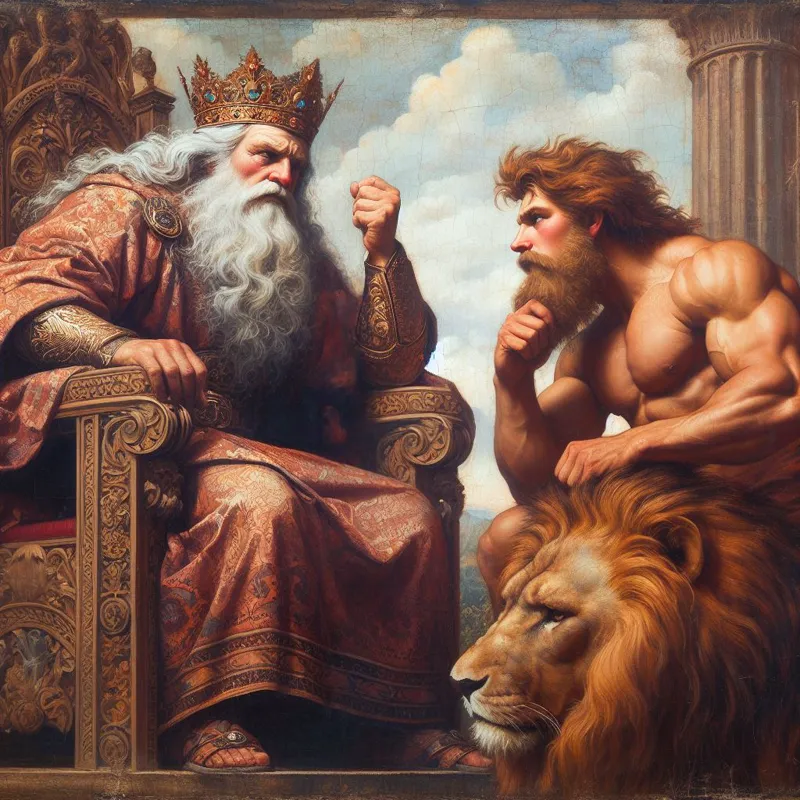
Be judged by thine accuser
King Eurystheus, eager to see Hercules fail, assigned him the near-impossible task of retrieving the Golden Apples of the Hesperides. These apples were a wedding gift from Gaia to Hera, and they were famed for their beauty and divine properties. Hercules knew that this task was not just about brute strength; it required cunning and divine assistance.

Humble yourself before the gods
He first sought advice from the wise centaur Chiron, who informed him that the apples were guarded by a hundred-headed dragon named Ladon, and the only way to get them was to enlist the help of Atlas, the Titan who held up the sky.
Seeking Atlas

That which must not be stolen

Keepers of the grove
Hercules set out to find Atlas, knowing that the Titan's daughters, the Hesperides, were the guardians of the apples. Atlas had been condemned to hold the sky for eternity as punishment for his role in the Titanomachy, the war between the Titans and the Olympian gods.

Face of chaos
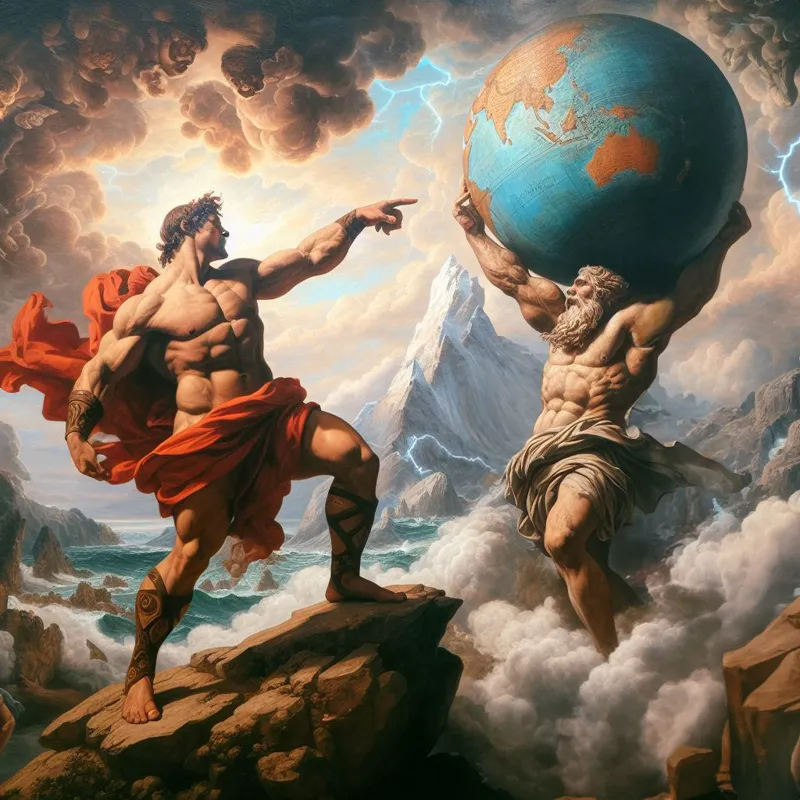
Realize what you pretend
Hercules found Atlas bearing the weight of the sky at the ends of the earth. He offered to hold up the sky temporarily if Atlas would fetch the apples for him. Atlas agreed, eager for a temporary respite from his burden.
Holding Up the Sky
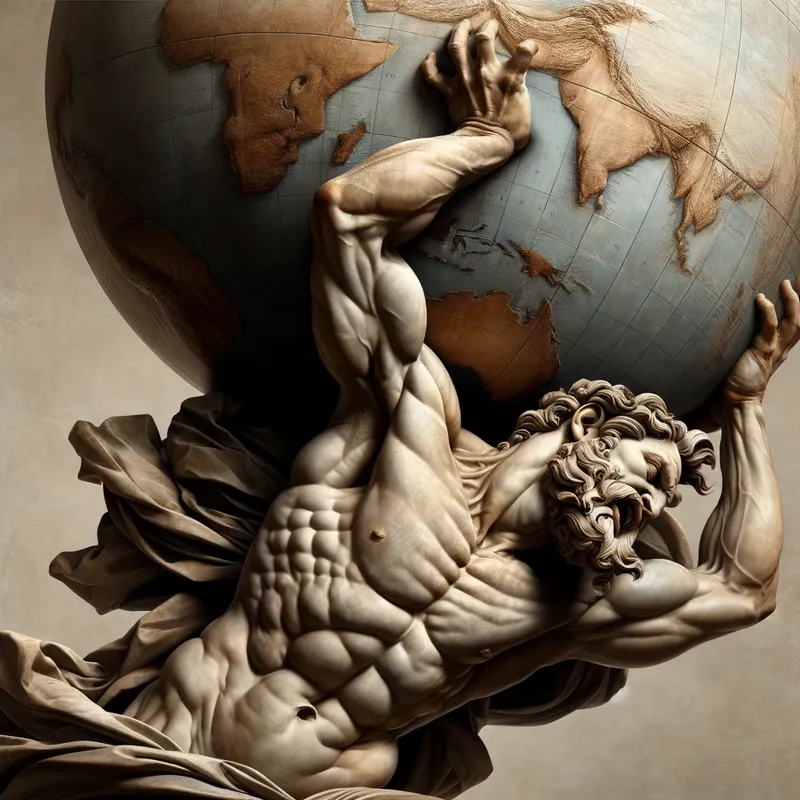
Reality shock

Illumination
As Hercules took the weight of the sky upon his shoulders, he experienced an immense and unfamiliar burden. The task was more challenging than he anticipated, as the weight of the sky was unlike anything he had ever borne.

Why bear such a burden?
Meanwhile, Atlas, free from his burden, saw an opportunity to escape his eternal punishment. He returned with the apples, proposing to deliver them himself to Eurystheus, leaving Hercules to hold the sky forever.
Eternal Duty

Our deeds define us
Hercules, realizing Atlas's intention to abandon him, resorted to a cunning trick. Hercules, known for his cleverness as well as his strength, devised a cunning argument. He acknowledged the immense labor Atlas had undertaken in holding up the sky, emphasizing how this task had become synonymous with Atlas's identity and legendary status.
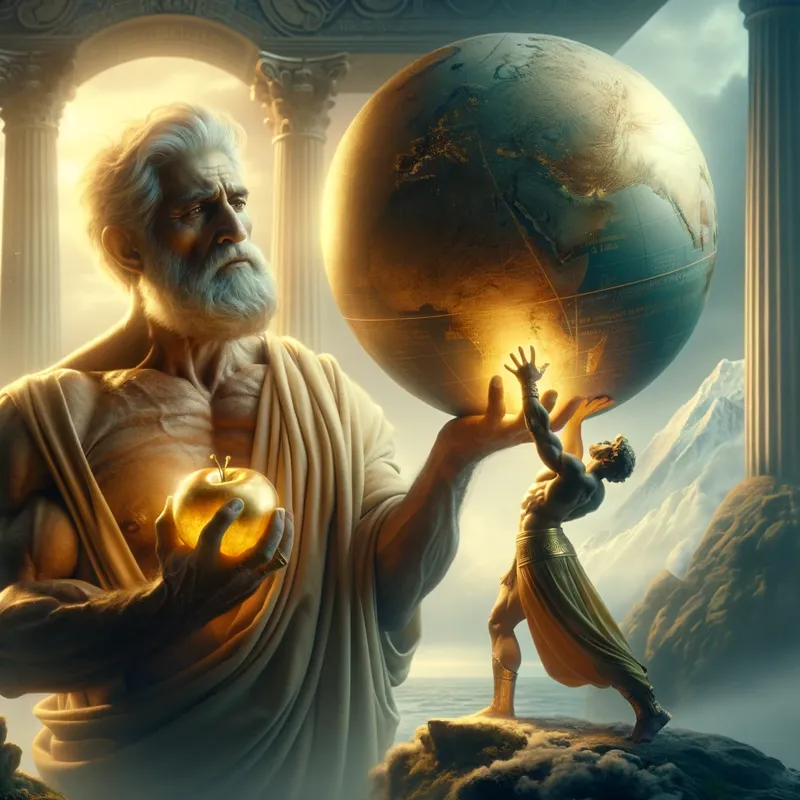
Glory
Hercules then cleverly suggested that if Atlas were to leave the task of holding the sky to Hercules permanently, the credit and honor of this immense labor would eventually be attributed to Hercules instead. He argued that people might forget Atlas's long-standing endurance and strength, redirecting their awe and admiration towards Hercules, the new bearer of the sky.

The holy bearer of the largest burden
Atlas, concerned about losing recognition for his centuries of labor, fell for Hercules' ruse. He decided to take back the burden of the sky, driven by the desire to maintain his legacy and the credit for his enduring task. Hercules, seizing the opportunity, quickly took the golden apples and left, having successfully tricked Atlas into resuming his eternal duty.
Returning the Apples

What was the labor?
As Hercules was returning to Eurystheus he faced another challenge: the apples were not meant to leave the garden. Athena appeared to Hercules, instructing him to return the apples to their rightful place as they were sacred and not meant for mortals. Hercules, respecting the will of the gods, agreed and handed the apples to Athena, who returned them to the Hesperides' garden.

A plea for respect... for humanity
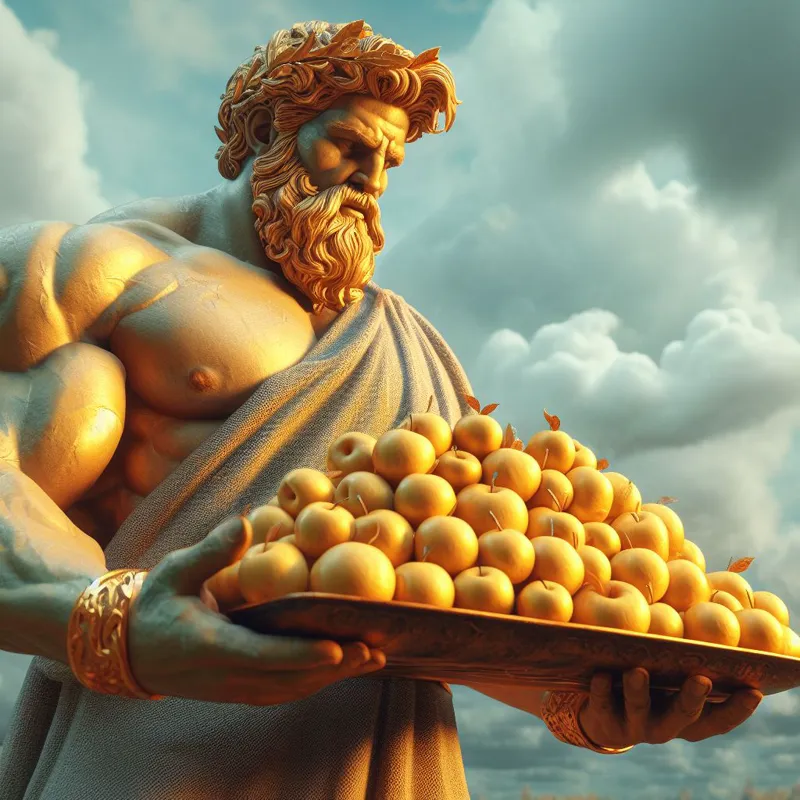
Wisdom
Completing the Labor
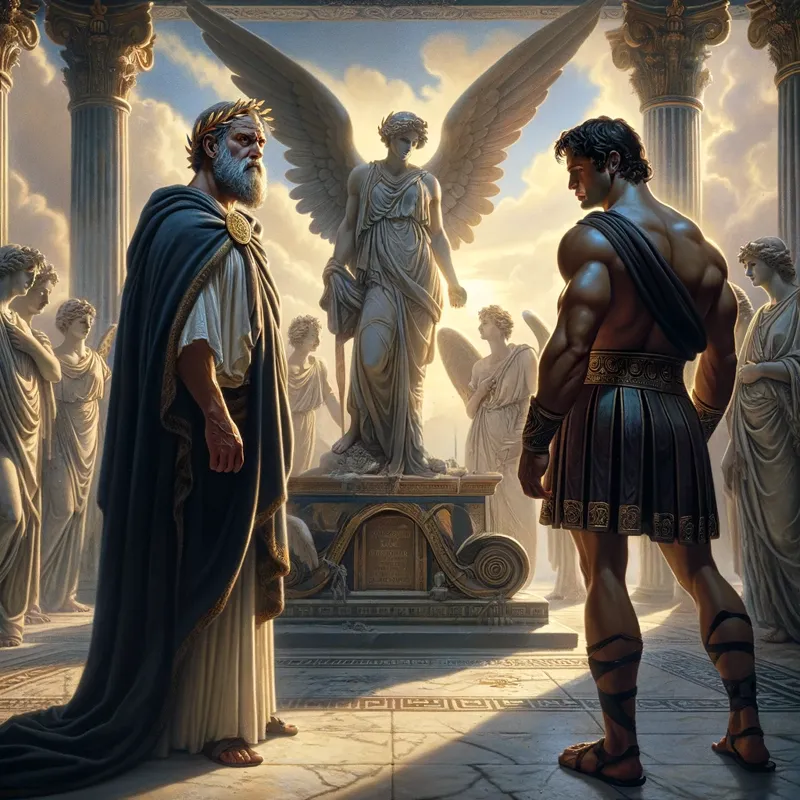
The labor completed
Hercules returned to King Eurystheus without the apples, but with a tale of his incredible journey and the obstacles he overcame. Eurystheus, frustrated but impressed, acknowledged the completion of the labor. Hercules had once again demonstrated not just his physical strength but also his wit and ability to navigate the realms of gods and monsters.
The Eleventh Labor of Hercules exemplifies the hero's journey, blending physical challenges with mental acumen. It highlights his ability to think creatively in difficult situations and his respect for the divine order. This labor, like the others, cements Hercules' status as one of the greatest heroes in Greek mythology, a symbol of strength, courage, and ingenuity.

